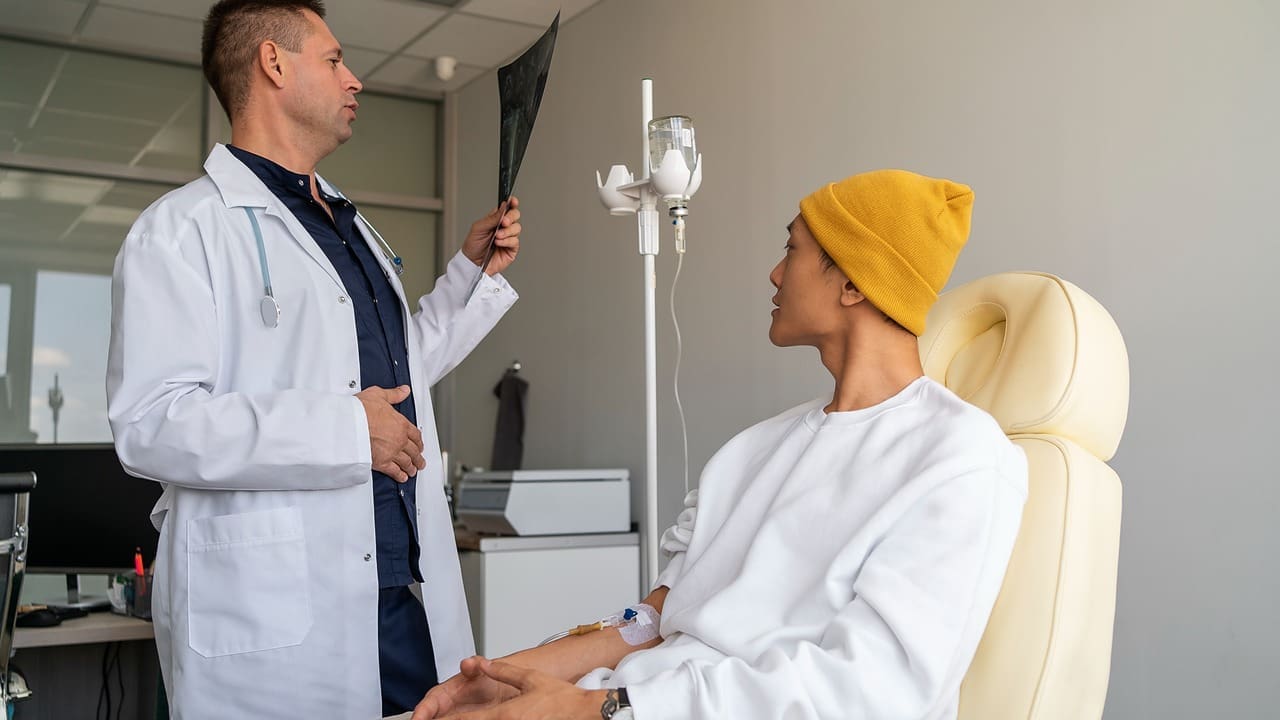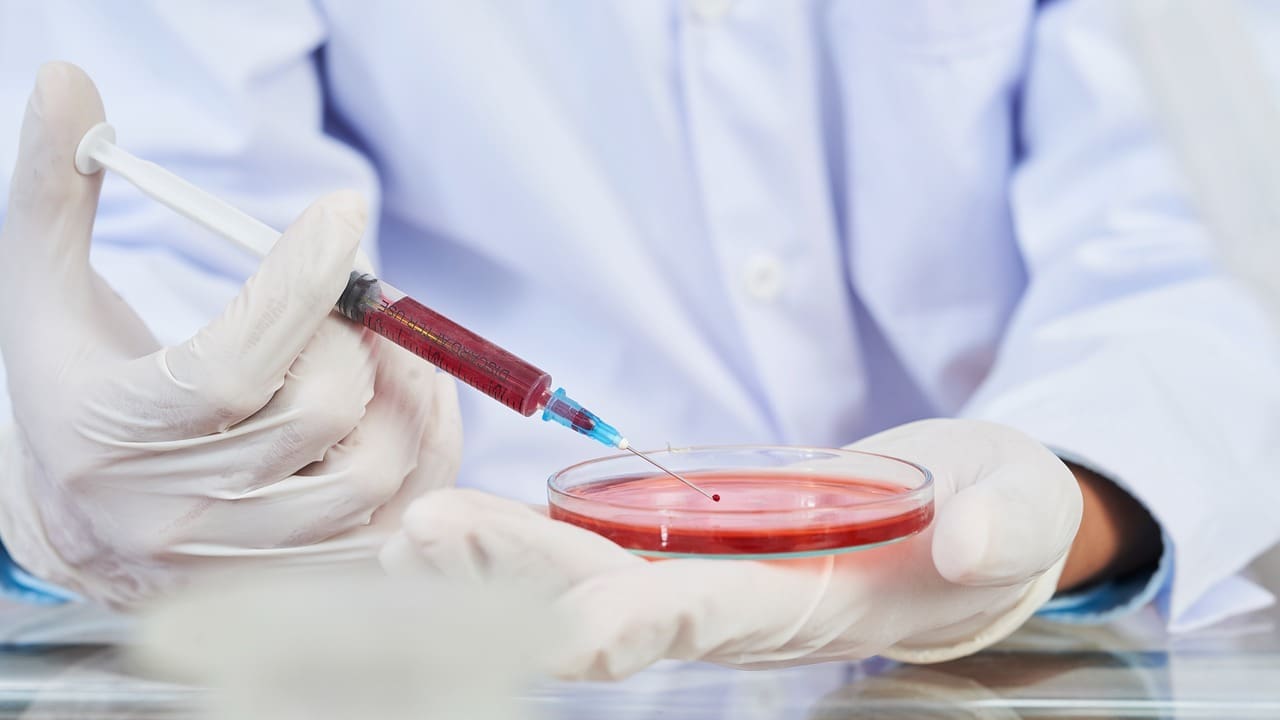What Is Medical Oncology? Patient Friendly Guide to Cancer Care and Support
Medical oncology is the field of medicine that focuses on diagnosing and treating cancer with medications and supportive care. Your medical oncologist creates a care plan just for you, which may include chemotherapy, targeted therapy, immunotherapy, or hormone therapy.
They work closely with surgical and radiation oncologists to make sure you get the right treatment when you need it, always keeping your goals and quality of life in mind.
When you first meet your care team, they confirm your diagnosis and stage using scans, lab tests, and sometimes genetic testing. This helps you understand your options and get answers to important questions, like what treatments are best for your cancer, what side effects to expect, and how your progress will be tracked.
From the start, your care plan aims to control cancer, help you stay strong, manage symptoms, and support you and your family with clear and caring communication.

Medical Oncology Near Me: How to Choose the Right Cancer Care Team
Subspecialty expertise: Centers with disease focused programs (for example, breast, lung, gastrointestinal, genitourinary, gynecologic, and hematologic) deliver more precise care.
Multidisciplinary planning: Ask if your case will be discussed in tumor boards that include medical, surgical, and radiation oncology.
Access to therapies: Ensure on site infusion for chemotherapy and immunotherapy, pharmacy support, and timely imaging.
Clinical trials: Trials can offer cutting edge therapies for eligible patients.
Patient support: Nutrition, social work, palliative care, psycho oncology, and survivorship resources should be readily available.
Convenience and communication: Clear education, appointment reminders, and robust oncology electronic medical records help you stay on track.
A high quality medical oncology center explains your options in plain language, invites your questions, and partners with you on every decision.
What Is Medical Oncology and Hematology? Understanding Combined Cancer and Blood Disorder Care
- Perform a thorough workup (blood panels, bone marrow biopsy when indicated, imaging, and molecular testing)
- Offer targeted therapy, immunotherapy, or chemotherapy tailored to your diagnosis.
- Manage transfusions and growth factors when needed.
- Provide infection prevention strategies and vaccine guidance.
- Monitor long term for remission, late effects, and overall wellness.
Medical Oncology Doctor: What They Do and When to See One
A medical oncologist is the specialist who oversees cancer treatment with medications and supportive care. Their responsibilities include:
- Explaining your cancer type, stage, and biomarker results
- Recommending evidence based treatments tailored to your tumor biology and personal goals
- Coordinating with surgical oncology and radiation oncology for optimal timing
- Proactively preventing and managing side effects.
Tracking response with labs and scans, and adjusting the plan as needed.
See a medical oncologist if you have a confirmed cancer diagnosis, a complex or rare tumor, or if you want a second opinion. Your oncologist also guides survivorship once active treatment ends.
Oncology in Medical Terms: Clear Definitions Patients Can Trust
Cancer care uses terms that can be confusing. Here are quick, patient friendly definitions:
Oncology (medical term): The branch of medicine focused on cancer prevention, diagnosis, and treatment.
Medical oncology: Cancer care using medications such as chemotherapy, targeted therapy, immunotherapy, and hormone therapy.
Radiation oncology: Precision radiation used to destroy cancer cells.
Surgical oncology: Operations to remove tumors and involved tissues.
Staging: How advanced a cancer is its size, lymph node involvement, and whether it has spread.
Biomarkers/molecular profiling: Tests that identify genetic or protein changes in a tumor to guide targeted therapy or immunotherapy.
Remission: No detectable evidence of cancer (partial or complete).
Survivorship: Health and support after active treatment, focused on long term wellness.
Clear definitions make it easier to understand your plan and participate in shared decision making.
Medical Oncology Treatments: Chemotherapy, Immunotherapy, Targeted and Hormone Therapy

Your treatment plan may include one or more systemic therapies. The right combination depends on the
type and stage of cancer, biomarker results, your overall health, and your preferences.
Chemotherapy : Chemotherapy uses medicines that damage rapidly dividing cells. It can be administered intravenously or orally and is given in cycles with rest periods. Common side effects include fatigue, nausea, hair loss, and lowered blood counts, but prevention is far better today with modern anti nausea medications, growth factors, and supportive care. Your team will review what to expect, what to report urgently (such as fever), and how to stay on schedule safely.
Targeted Therapy : Targeted therapy acts on specific genetic changes or proteins driving cancer growth (examples include
HER2, EGFR, ALK, BRAF, and others). It can be a pill or infusion and may cause different side effects than chemotherapy (for example, skin or liver changes). Molecular profiling helps determine if you’re a candidate.
Immunotherapy : Immunotherapy, including checkpoint inhibitors, activates your immune system to recognize and attack cancer cells. Side effects are immune related and can affect the skin, colon, thyroid, liver, or lungs. Early reporting and prompt treatment of symptoms are essential to keep you safe and on therapy.
Hormone Therapy : Some cancers, like certain breast and prostate cancers, grow in response to hormones. Hormone therapy lowers hormone levels or blocks their effects. It can be combined with other treatments and often continues for months to years to reduce the risk of recurrence.
Medical Oncology Unit and Center: What to Expect at Your First Visit ?
- Intake and review of oncology electronic medical records and prior tests
- Detailed history and exam by your medical oncology doctor
- Clear explanation of diagnosis, stage, and recommended plan
- Discussion of benefits, risks, timelines, and goals of care
- Supportive care planning (nutrition, social work, symptom management)
- Lab work or scans, if needed, to finalize timing
- A written summary and calendar for treatments and follow ups
During therapy, you’ll have regular infusion visits or medication checks, lab monitoring, and imaging at set intervals to track response. After treatment, a survivorship plan outlines follow ups, screening, and steps to maintain long term health.
The Difference Between Medical Oncology and Radiation/Surgical Oncology
Medical oncology treats cancer with medications that circulate throughout the body (chemotherapy, targeted therapy, immunotherapy, hormone therapy). It is often used when there is a risk of microscopic spread or when the disease is already systemic.
Radiation oncology treats cancer using focused radiation beams to target tumors precisely, either alone or combined with systemic therapy.
Surgical oncology removes tumors and, when appropriate, lymph nodes. It may be the first step for localized cancers or part of a combined plan.
Your care team will suggest the best order for treatments, such as starting with surgery, medications, radiation, or a mix, depending on your cancer type, stage, and personal goals.
Managing Side Effects, Staying Well, and Daily Life During Treatment

Proactive care keeps you safe and functional:
- Infection prevention: Report fever promptly; practice hand hygiene and follow vaccination guidance from your team.
- Energy and activity: Gentle daily movement eases fatigue; schedule rest and aim for consistent sleep.
Nutrition and hydration: Small, frequent, protein rich meals and adequate fluids support recovery; ask for an oncology nutrition consult if eating is hard. - Skin, hair, and mouth care: Use gentle products; report rashes or mouth sores early for faster relief.
- Emotional health: It’s normal to feel anxious or notice changes in your mood. Ask about counseling, support groups, or ways to relax. Caregivers need support too, so involve them in learning and planning.
- Work and family life: Talk with your team about work notes, activity restrictions, and ways to coordinate school or childcare around infusion days.
Your plan adapts over time; quick reporting of new symptoms helps avoid delays.
Survivorship and Follow Up in Medical Oncology: Life After Treatment
When active therapy ends, survivorship begins. You’ll receive:
- A treatment summary and follow up schedule for labs and scans
- Guidance on screening for recurrence and late effects (for example, heart or bone health, depending on therapy)
- Recommendations on exercise, nutrition, vaccinations, and preventive care
- Support for returning to work and everyday routines
- Resources for mental health, sexual health, and long term symptom management
If you continue long-term therapy, survivorship still means finding the right balance between managing cancer and maintaining your quality of life.
For more information about our academic and training initiatives, visit Liv Hospital Academy.
Frequently Asked Questions for Medical Oncology
What is medical oncology vs oncology?
“Oncology” is the umbrella field; “medical oncology” is the branch that treats cancer with medications and comprehensive supportive care.
What is the difference between medical oncology and surgical oncology?
Surgical oncology removes tumors with operations; medical oncology treats cancer with medications. Many patients receive both as part of a coordinated plan.
What does oncology mean in medical terms?
Oncology is the medical field that focuses on cancer prevention, diagnosis, and treatment.
What does an oncology medical assistant do?
In many clinics, medical assistants help with rooming, vital signs, coordinating labs and imaging, updating records, and supporting communication between you and your care team.
What is medical oncology nursing?
A specialty where nurses deliver infusions, teach side-effect prevention, monitor symptoms, and provide day-to-day support throughout treatment.
What is a medical oncology appointment like?
It includes a review of your records, exam, discussion of treatment options, education on side effects, and a plan with timelines and follow-ups.
What is a medical oncology unit?
The clinical area where oncology care occurs, including consultation rooms, infusion suites, and support services like pharmacy and lab.




